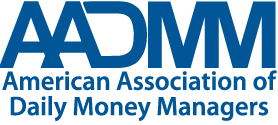
Have you been struggling to identify trustworthy people to act as agents under a financial power of attorney (POA), trustee, or executor, — for either yourself, your loved one or your clients? You are not alone.
With an aging population in which many people don’t have adult children or younger friends to whom they can turn, there is a growing need for people who can act as their agents for financial matters.
What is an agent, trustee, executor, or fiduciary?
While the responsibilities vary somewhat for each role based on the laws in each state — and I am not a lawyer — here are informal, commonly accepted definitions with resources for more information below.
Agent: A person you, as the principal, appoint to act on your behalf. Trustees, executors, and agents are all examples of agents. Agents have a fiduciary duty to the principal they represent.
Executor: An executor assumes responsibilities for managing money or assets once you pass away. Executors are named in your will or appointed by the probate court.
Fiduciary: A fiduciary is someone who manages money or property for someone else. When you name a fiduciary, they are obligated by law to manage your money and property for your benefit, not theirs.
Guardian: Courts will appoint a guardian for incapacitated adults and minors under certain circumstances. In many instances, parents nominate a guardian for their children upon their deaths in their will.
Power of Attorney (POA): A power of attorney is a legal document you can use to give someone else the authority to take specific actions on your behalf, such as signing your checks to pay your bills or selling real estate for you. A power of attorney is only effective while you’re alive.
Trustee: A trustee is someone who takes responsibility for managing money or assets you have set aside in a trust.
Daily money managers as a resource
Daily Money Managers (DMMs) who choose to perform these duties and are properly insured, may be the right choice as fiduciaries.
DMMs generally work in clients’ homes managing financial, legal, and insurance matters, as well as coordinating clients’ relationships with their trusted advisors. They work closely with Geriatric Care Managers who manage the medical and physical care of clients. DMMs who are members of the American Association of Daily Money Managers (AADMM) have passed a background check and adhere to the industry’s Standards of Practice and Code of Ethics. Those who choose to be fiduciaries are aware of the legal obligations of a fiduciary.
What is the benefit of hiring a DMM?
Plain and simple: a DMM has the skills and knowledge that many family members may lack. Moreover, family members might be willing to be fiduciaries, but distractions such as family, work, and other obligations may keep them from doing the best job. At times, family dynamics also get in the way. Choosing a DMM from the community where the client lives (instead of having an agent under POA across the country, as some family members are) also means the client will have more attention and emergencies will have a faster response time.
A DMM can act as an agent (or Agent) under a POA, or have a limited POA to handle specific financial responsibilities – a checking account, for instance.
How to work with a DMM as fiduciary
In choosing a DMM to be a fiduciary, ask about the kind of insurance they carry. Just as attorneys carry Errors & Omissions Insurance, so do DMMs. Errors & Omissions and Fiduciary Insurance purchased through the broker affiliated with AADMM is carefully crafted to cover DMM services. If you hire a DMM firm with employees, confirm that the firm carries a Fidelity Bond with good limits to protect against the possible theft of a client’s property by the firm’s employees.
DMMs who are members of the American Association of Daily Money Managers (AADMM) have passed a background check and adhere to the industry’s Standards of Practice and Code of Ethics.
If a DMM is chosen to be a fiduciary, but the DMM is not currently working with the client, the DMM will want to ensure that he/she is kept informed of the client’s situation. The DMM will also arrange for an initial (usually paid) visit in the home of the client to become acquainted with the location of papers and gather all the information about the client’s finances. The DMM may then schedule periodic paid visits (every 3, 6 or 12 months) to confirm that the situation has not deteriorated, to keep informed of any changes in assets, and where they are currently located. These visits will allow the DMM to step in as a fiduciary as seamlessly as possible when the need arises.
Once acting as an agent under a POA, the DMM would be paid an hourly fee for work performed as an agent or if acting as a trustee or executor, any statutory rate.
Resources
Family Legal Issues
https://www.usa.gov/family-legal
What is a power of attorney (POA)?
https://www.consumerfinance.gov/ask-cfpb/what-is-a-power-of-attorney-poa-en-1149/
What is a fiduciary?
https://www.thebalance.com/what-is-a-fiduciary-3505114
4 Types of Power of Attorney: What You Should Know
https://www.kindredhealthcare.com/resources/blog-kindred-spirit/2017/06/02/4-powers-of-attorney-every-caregiver-should-know
—————
Rebecca Eddy, MBA, CDMM, is a co-founder and partner of Eddy & Schein Group in New York. A version of this blog post first appeared on the Eddy & Schein Group blog.











